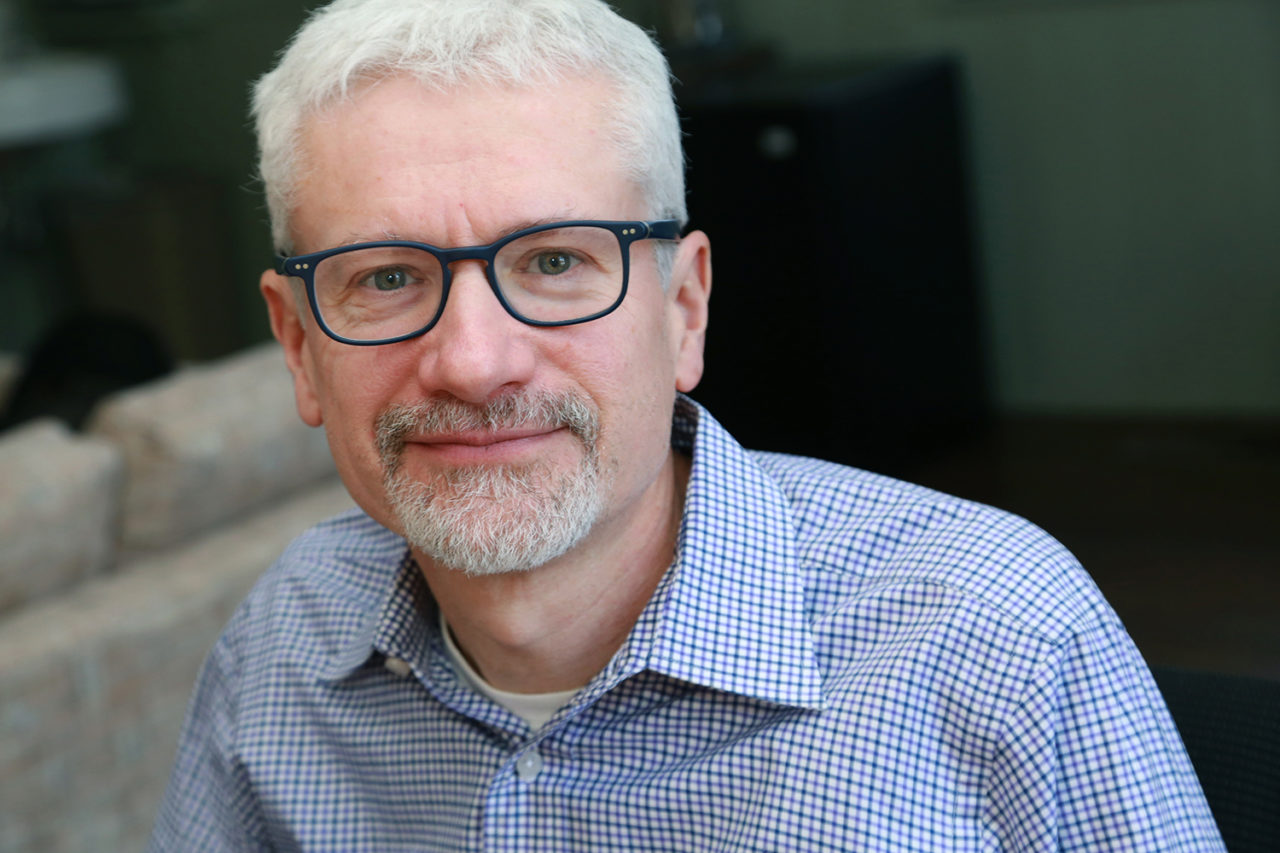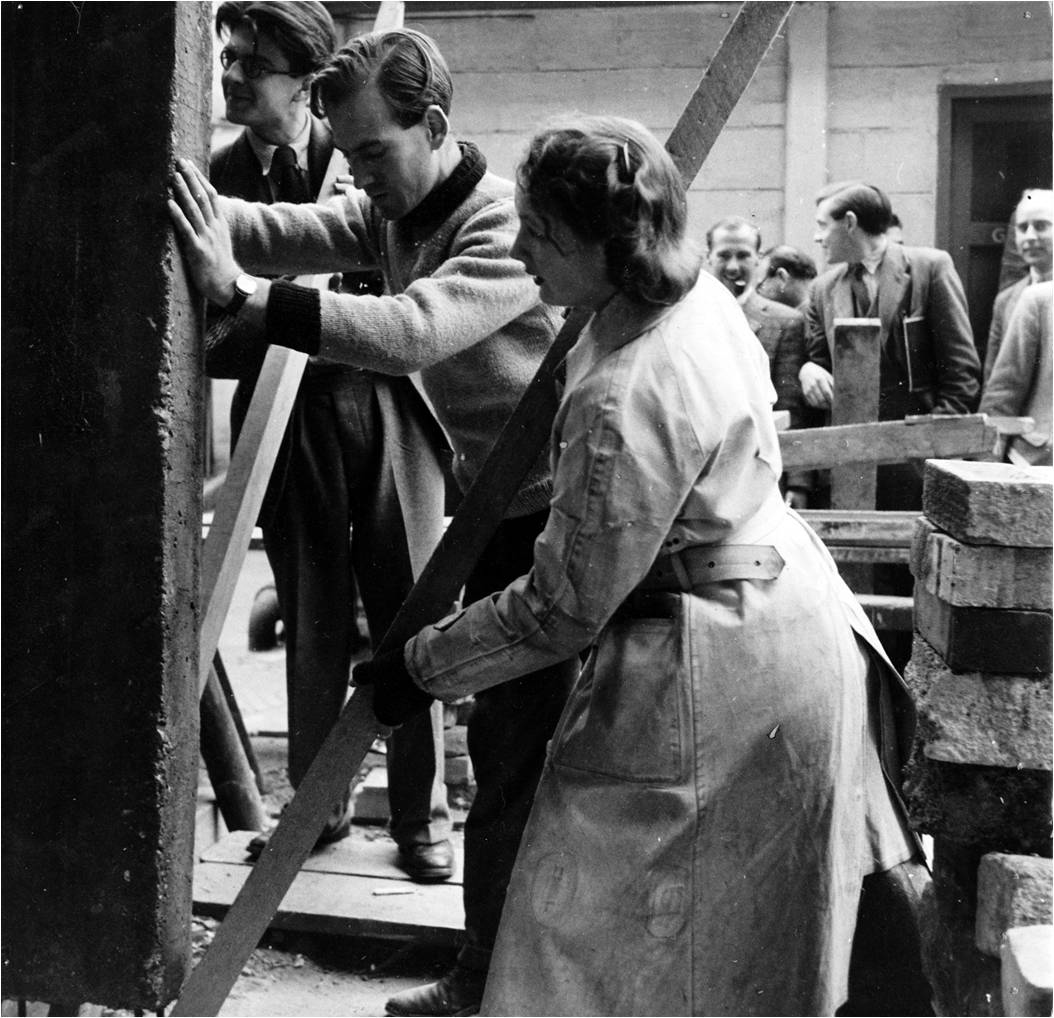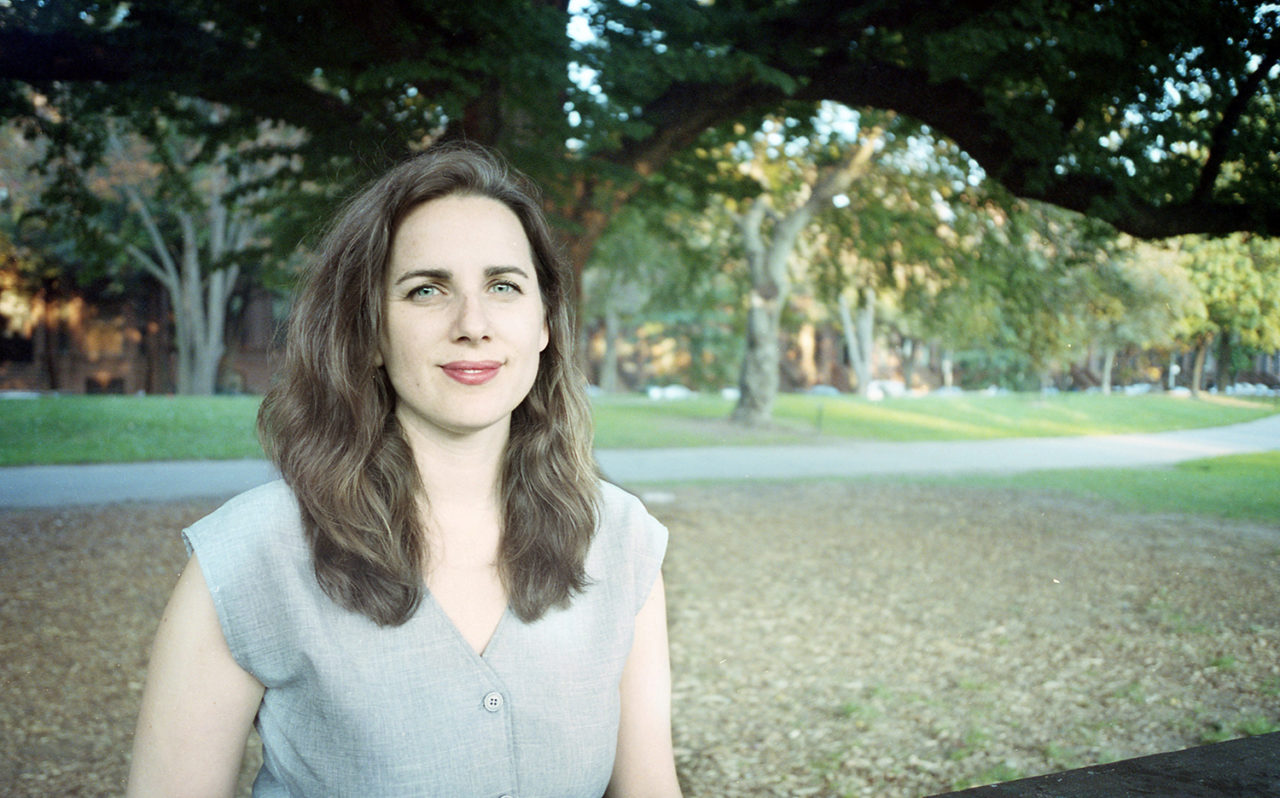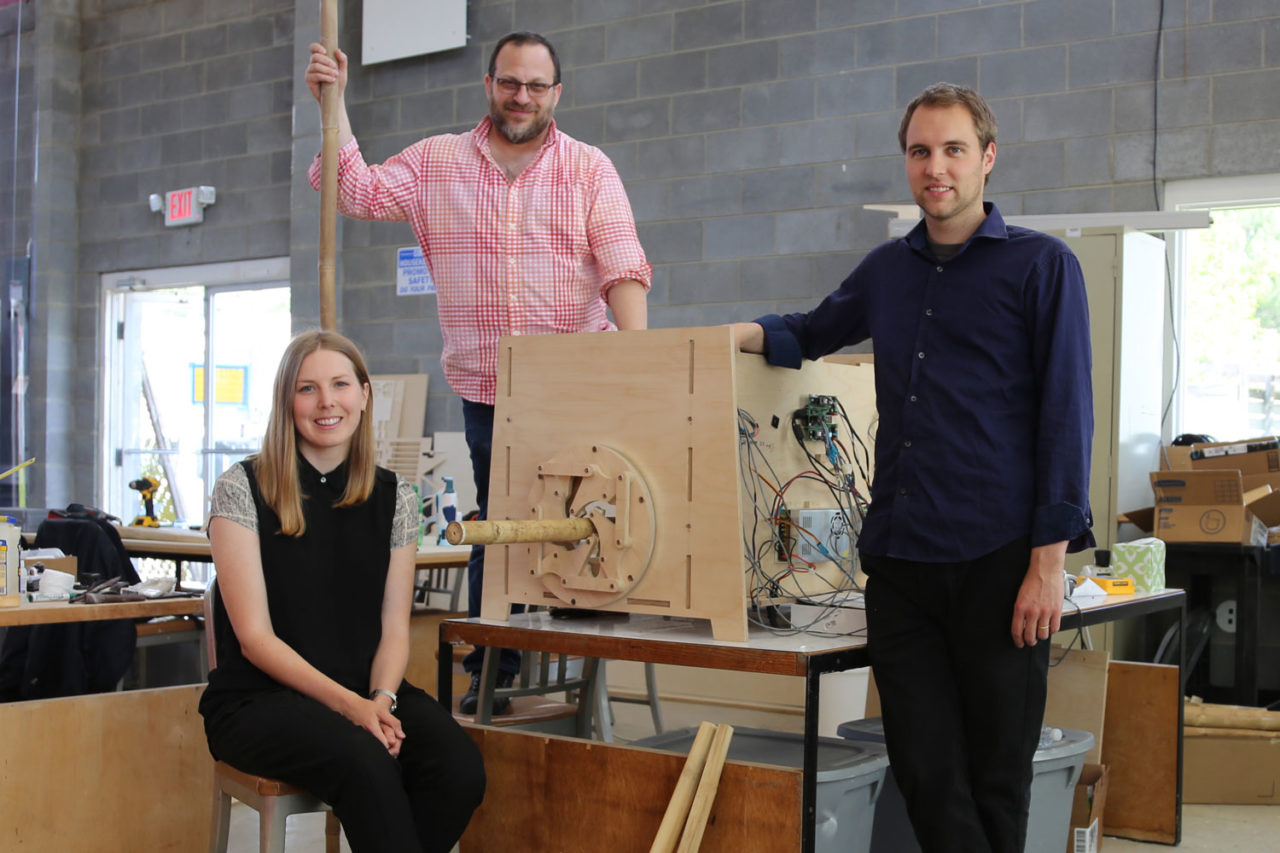by Center for Architecture
The Center for Architecture, in partnership with AIA New York, is proud to announce the recipients of the 2019 Arnold W. Brunner Grant for Architectural Research:
- Richard W. Hayes, AIA (New York, NY) – “Build Now: Practical Training at the Architectural Association after World War II”
- Karen Kubey (Brooklyn, NY) – “Good Neighbors II”
- Katie MacDonald, Kyle Schumann, and Jonas Hauptman (Blacksburg, VA) – “Smart Cross-Laminated Bamboo” (featured in Metropolis magazine here)
The Arnold W. Brunner Grant is awarded to mid-career architects for advanced study in any area of architectural investigation that will contribute to the knowledge, teaching, or practice of the art and science of architecture. Projects are judged based on their engagement with contemporary local and global architectural issues and the usefulness of the research’s end product.
2019 Brunner Recipients
Richard W. Hayes, “Build Now: Practical Training at the Architectural Association after World War II” – $3,250 Award
One of the most significant trends in contemporary architectural education is the dramatic growth of courses where students construct actual buildings. Usually referred to as design-build studios, these courses furnish students with opportunities to see the real-world consequences of their design decisions. A little-known precursor for contemporary design-build studios occurred in 1946-49 at the Architectural Association School of Architecture in London. The school’s faculty devised a practical training scheme for students that took advantage of a vacant site near Bedford Square leveled by bombs. During the three-year lifespan of the course, students built structures using brick, timber, and reinforced concrete.
For his project, Richard W. Hayes will travel to London to research this educational endeavor, placing it in the context of post-war Britain and examining whether the program may offer lessons for today—as schools continue to address the degree to which actual building experience should be a part of an architect’s education. A distinctive aspect of the Architectural Association’s program was the high percentage of women involved. The school began admitting women in 1918, and during the war years, the number of female students equaled and at times exceeded the number of male students. The role of women in the construction course will be an important aspect of Hayes’ research. The project will engage connections between architectural education and gender, the urban history of London, and post-war Britain.
Richard W. Hayes is an architect and architectural historian, educated at Columbia and Yale Universities.
His previous publications include The Yale Building Project: The First 40 Years (Yale University Press, 2007), a comprehensive history of the influential educational program. He has also published extensively on the Aesthetic Movement, including a chapter in E.W. Godwin: Aesthetic Movement Architect and Designer edited by Susan Weber Soros (Yale University Press, 1999). Hayes was a visiting fellow at the University of Cambridge in 2009 and 2013. In a career combining practice with scholarship, Hayes has received grants and awards from the American Institute of Architects, the American Architectural Foundation, the Graham Foundation, the Paul Mellon Centre, the European Architectural History Network, New York State Council on the Arts, the MacDowell Colony and Yaddo.
Karen Kubey, “Good Neighbors II” – $13,000 Award
In 1997, architects R. Thomas Jones, Michael Pyatok, and William Pettus published Good Neighbors: Affordable Family Housing (Design for Living), which acted as the “first truly authoritative guide to modern affordable housing design.” The book—with richly illustrated American case studies, resident profiles, and policy and design guidance—became an indispensable resource for a generation of housing designers and advocates. Two decades later, affordable housing has evolved into a robust industry and the demand for quality low-cost housing has surged, creating an urgent need for an expanded and updated resource on the topic.
Karen Kubey’s project will initiate the research phase of Good Neighbors II, a comprehensive guide to affordable housing design in the U.S., to be written by Kubey in collaboration with the original authors. The book and accompanying online resource will showcase exemplary affordable housing case studies from across the country, in urban, suburban, and rural contexts, and will revisit selected projects from the original publication to evaluate their success over time. Good Neighbors II will address architects, developers, students, and communities considering affordable housing developments in their neighborhoods, and will examine the role of below-market housing in promoting health equity and economic, racial, and environmental justice. Through collecting and sharing this information in an accessible format, the project will contribute to the goal of affordable, quality housing for every resident in the U.S.
Karen Kubey is an urbanist and visiting associate professor at Pratt Institute specializing in housing and health. Kubey co-founded the Architecture for Humanity New York chapter (now Open Architecture/New York) and New Housing New York, and was the first executive director of the Institute for Public Architecture. She is the guest-editor of Housing as Intervention: Architecture towards Social Equity (Architectural Design) and has recently collaborated with the NYC Department of Health and Mental Hygiene and the NYC Housing Authority on projects promoting social justice through design. Trained as an architect at the University of California, Berkeley and Columbia University, Kubey began her career in affordable housing design.
Katie MacDonald, Kyle Schumann, and Jonas Hauptman, “Smart Cross-Laminated Bamboo” – $13,000 Award
The potential benefits of bamboo as a rapidly-renewable, low-carbon, sustainable building material are well established, yet bamboo remains underutilized globally due to its irregularity, often-antiquated construction techniques, and deep-rooted aesthetic stigmas in western culture.
The project’s goal is to develop Smart Cross-Laminated Bamboo, a sustainable construction material that takes advantage of the best qualities of both Cross-Laminated Timber (CLT) and Structural Insulated Panels (SIPs). SCLB will transform the round, irregular bamboo into a consistent flat panel, offering new applications and possibilities within a Western context, ultimately revolutionizing the use of structural bamboo and its cultural and societal perception.
This project team consists of Katie MacDonald, Kyle Schumann, and Jonas Hauptman. MacDonald and Schumann received their B.Arch. degrees in 2013 from Cornell University, followed by M.Arch. degrees from Harvard University and Princeton University, respectively. They actively participate in practice, realizing projects as their firm After Architecture. Jonas Hauptman is an industrial designer and entrepreneur. He received his BFA from the Rhode Island School of Design and his MFA from Cranbrook, and served as the Oberdick Fellow in Architecture at the University of Michigan. Hauptman has two decades of experience in developing companies that specialize in new fabrication technologies and material systems. All three currently teach at Virginia Polytechnic Institute and State University in the College of Architecture and Urban Studies. The execution of this project will include collaboration with faculty from Sustainable Biomaterials and Building Construction as well as the engagement of students from across the University community to participate and collaborate in the development of the work.
About Center for Architecture Grants and Scholarships
The Center for Architecture, in partnership with AIA New York, awards scholarships and grant awards throughout the year, for architectural students, architectural student journals, and practicing architects. All grants are open to applicants nationwide.
2019 grants and scholarships are awarded by the 2019 Scholarship Committee: Emily Abruzzo, AIA, LEED AP, NCARB, Abruzzo Bodziak Architects; Barry Bergdoll, Hon. AIA, Columbia University Graduate School of Architecture, Planning & Preservation; Matthew Clarke, Assoc. AIA, The Trust for Public Land; Gerard Geier, FAIA, FIIDA, LEED AP, FXCollaborative; Douglas Hocking, AIA, Kohn Pedersen Fox Associates; Eve Klein, Assoc. AIA, Eve Klein Consulting; Carol Loewenson, FAIA, LEED AP, Mitchell Giurgola; Catherine Seavitt Nordenson, AIA, Spitzer School of Architecture, City College of New York; Joseph Tortorella, PE, Silman; and Gia Wolff, The Cooper Union.
To find out more about our upcoming deadlines, please visit: www.centerforarchitecture.org/scholarships-grants.




